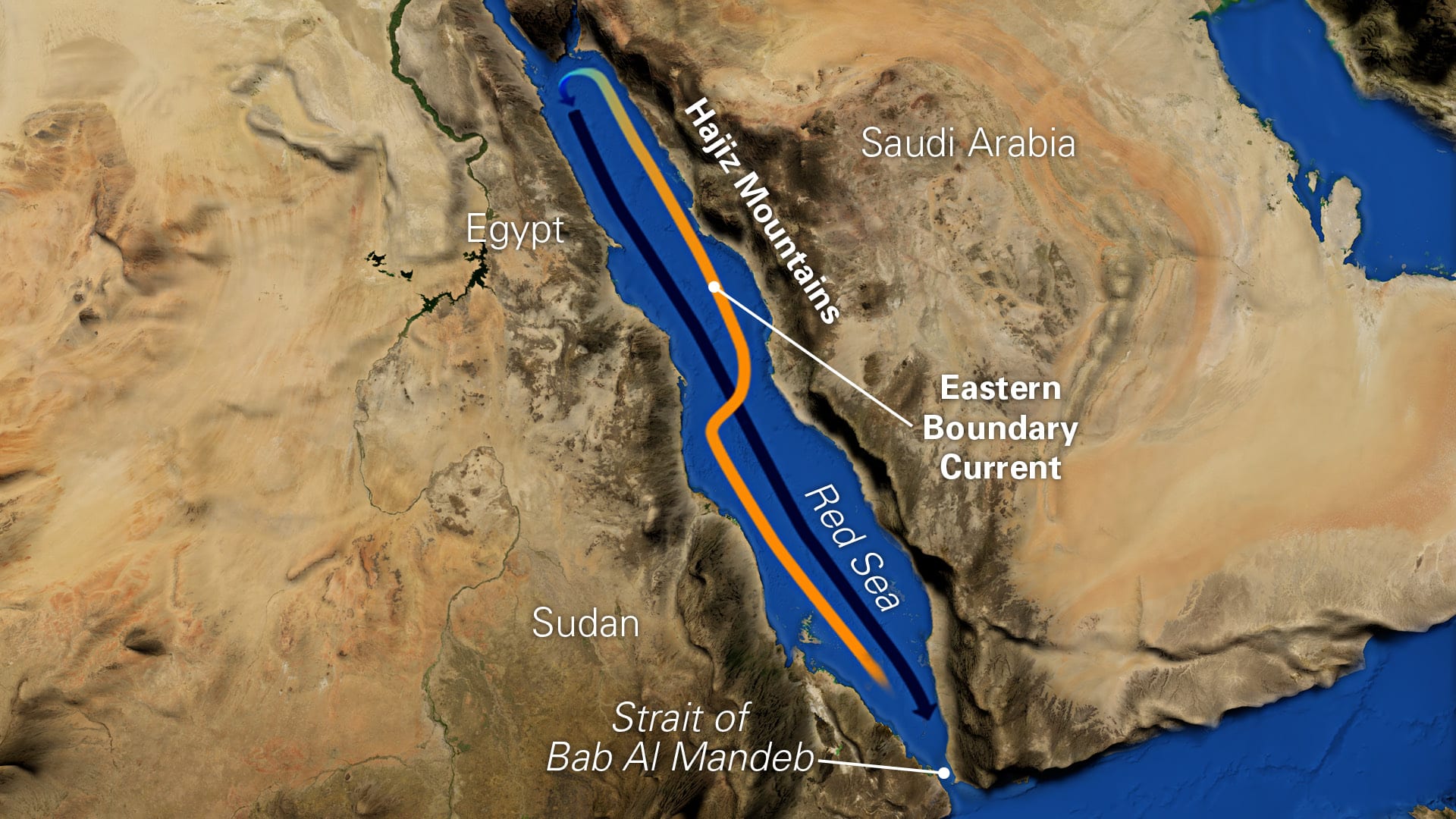US launches Red Sea force as ships reroute to avoid attacks (The Hindu)

- 20 Dec 2023
Why is it in the News?
U.S. Defense Secretary Lloyd Austin on Tuesday announced the creation of a multinational operation to safeguard commerce in the Red Sea following a series of missile and drone attacks by Yemen's Iran-aligned Houthis.
Context:
- The U.S. Defense Secretary recently revealed the establishment of a multinational operation to protect commerce in the Red Sea.
- This decision comes in response to a string of missile and drone attacks by Yemen's Iran-aligned Houthis.
- The gravity of these attacks has prompted several shipping companies to instruct their vessels to remain stationary and avoid entering the Bab el-Mandeb Strait until the security concerns are addressed.
About the Red Sea:
- The Red Sea is a narrow waterway extending southeastward from Suez, Egypt, to the Bab el-Mandeb Strait.
- The Bab-el-Mandeb Strait links the Red Sea to the Gulf of Aden, providing a connection between the Mediterranean Sea and the Arabian Sea.
- Essentially, it is a narrow inland sea positioned between the Arabian Peninsula and Africa.
- The Red Sea acts as a boundary, separating the coastlines of Egypt, Sudan, and Eritrea from those of Saudi Arabia and Yemen.
- The Gulf of Aqaba, an extension to the northeast, stretches into southern Israel and southwestern Jordan.
- Significance: The Red Sea boasts some of the planet's hottest and saltiest seawater.
- It stands as one of the most heavily traversed water routes globally, facilitating maritime traffic between Europe and Asia.
- Relevance for India:
- Potential disruptions along this route could lead to a significant surge, up to 25-30%, in freight rates for Indian shipments bound for Europe and Africa.
- For India, the Red Sea trade route serves as the most direct path for ships traveling from Asia to Europe.
- India heavily depends on the Bab-el-Mandeb Strait for crucial aspects such as crude oil, LNG imports, and trade with regions in West Asia, Africa, and Europe.
- This passage is critical, accounting for 30% of global container traffic.
Who are the Houthi Rebels?
- The Houthis are a Shiite Muslim sect with roots that date back centuries in Yemen.
- Members of the religion are a minority in Yemen, which is predominantly Sunni Muslim, but they are a significant one, numbering in the hundreds of thousands and making up as much as a third of the overall population.
- Named after the Houthi tribe, they adhere to Zaydi Shia beliefs within Islam, emphasizing the lineage of Prophet Muhammad's family as the political leaders of the state.
- Also recognized as Ansar Allah, translating to "Supporters of God."
- Involvement in Yemen's Civil War: A major faction in Yemen's nearly decade-long civil war, starting in 2014 when Houthi insurgents seized control of Yemen's capital, Sanaa.
- By early 2015, Saudi Arabia, supported by other Gulf states and the U.S., conducted airstrikes against the Houthis, who have backing from Iran.
- Although a ceasefire was signed in 2022, it lapsed after six months, with the parties involved not returning to full-scale conflict.
- Houthi Attacks on Red Sea Ships:
- Iran-backed Houthi rebels from Yemen have targeted ships in the Red Sea in response to Israel's military actions in Gaza.
- The Houthis, supporting Hamas, declared on November 19 their intent to attack vessels they believe are traveling to and from Israel.
